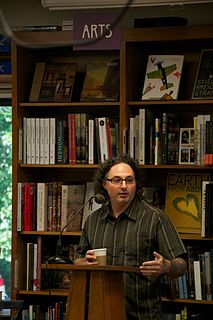A Quote by Fannie Lou Hamer
... some of my people could have been left [in Africa] and are living there. And I can't understand them and they don't know me and I don't know them because all we had was taken away from us. And I became kind of angry; I felt the anger of why this had to happen to us. We were so stripped and robbed of our background, we wind up with nothing.
Related Quotes
Grandmother pointed out my brother Perry, my sister Sarah, and my sister Eliza, who stood in the group. I had never seen my brother nor my sisters before; and, though I had sometimes heard of them, and felt a curious interest in them, I really did not understand what they were to me, or I to them. We were brothers and sisters, but what of that? Why should they be attached to me, or I to them? Brothers and sisters were by blood; but slavery had made us strangers. I heard the words brother and sisters, and knew they must mean something; but slavery had robbed these terms of their true meaning.
In the middle of this it was good to have some moments in which whatever was left of you could sit in silence. When you could remember. When the evidence that had gathered could be sorted. And it was a difficulty if another person imagined these moments were their property. Your life got sliced from two sides like a supermarket salami until there was nothing left in the middle. You were the bits that had been given away right and left to others. Because they wanted the piece of you that belonged to them. Because they wanted more. Because they wanted passion. And you did not have it.
I remembered some people who lived across the street from our home as we were being taken away. When I was a teenager, I had many after-dinner conversations with my father about our internment. He told me that after we were taken away, they came to our house and took everything. We were literally stripped clean.
A very elementary exercise in psychology, not to be dignified by the name of psycho-analysis, showed me, on looking at my notebook, that the sketch of the angry professor had been made in anger. Anger had snatched my pencil while I dreamt. But what was anger doing there? Interest, confusion, amusement, boredom--all these emotions I could trace and name as they succeeded each other throughout the morning. Had anger, the black snake, been lurking among them? Yes, said the sketch, anger had.
When we are angry, our anger is our very self. To suppress or chase away our anger is to suppress or chase away ourselves. When anger is born, we can be aware that anger is an energy in us, and we can change that energy into another kind of energy. If we want to transform it, first we have to know how to accept it.
If I was feeling angry, I had to investigate not just who or what I was angry at, but why. And then I had to do the hard part and ask myself: Are you justified in where your anger is being directed? So, while I allowed my emotions to be valid, I knew that if I were to use them constructively, in the service of art, then I had to look at them dispassionately. Some might call this therapy, and I suppose it was. But I also had a goal that was larger than just healing myself, which was connecting to an audience.
X is not my real name. But if you study history, you'll find why no Black man in the Western Hemisphere knows his real name. Some of his ancestors kidnapped our ancestors from Africa and took us into the Western Hemisphere and sold us there, and our names were stripped from us and so today we don't know who we really are. I am one of those who admit it, and so I just put X up there to keep from wearing his name.
I think the irony of modern life is that our data, our highly personal information, has been taken from us, but in many cases it was given away freely by us. We willfully, consciously or unconsciously, acquiesced and gave it away for a new app, you know? For the products that we have. We didn't read the fine print, or don't even really care and didn't really check to see if we could opt out. No one had to steal it from us.
And questions give us no rest. We know not why our curse makes us seek we know not what, ever and ever. But we cannot resist it. It whispers to us that there are great things on this earth of ours, and that we can know them if we try, and that we must know them. We ask, why must we know, but it has no answer to give us. We must know that we may know.
As we talked, I had the sense of uncovering something precious and long-buried, fully formed. Our conversation was a process of removing layers, some of them easily dusted away. Other layers, requiring chisels or axes, were left alone for now. We revealed as much as we dared about what had happened during the years that separated us. But it wasn't what I had expected, being with Hardy again. There was something in me that remained stubbornly locked away, as if I were afraid to let out the emotion I had harbored for so long.
I know. So, I was angry with you. I didn't know why. I was angry with the world. I did know why. I hated all my therapists for being useless. I was this little ball of self-destructive fury, and none of them could do anything but tell me that I was a little ball of self-destructive fury. [...] I knew I was angry. Tell me what to do with that anger, please.
These events are swirling around them. In the white community, people felt like they had no control over their neighborhoods, their destiny. In the black community, centuries of government and economic forces were pushing on them. I went in with a kind of arrogance, maybe, that came from living in a very intellectual family, and I left knowing that there was a lot about the way people lived that I didn't know about.




































